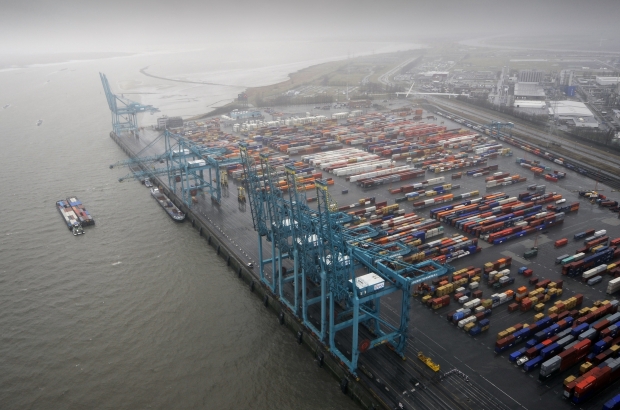- Daily & Weekly newsletters
- Buy & download The Bulletin
- Comment on our articles
Belgian ports prepare to implement new EU sanctions on Russian ships
Belgian ports are preparing for the consequences of a new sanctions package by the EU against Russia this week, RTBF reports.
The European Commission proposed a fifth package of sanctions targeting Russia on Tuesday. This time, it's a question of targeting, among other things, the banning of Russian coal exports to Europe. European ports would also be closed to Russian ships or ships operated by Russia, with certain exceptions.
Belgium is preparing for the implementation of these sanctions, which will affect ports such as Zeebrugge, Antwerp and Ghent.
During a visit to Zeebrugge, the federal minister for the North Sea, Vincent Van Quickenborne, saw for himself the preparations taking place and spoke about the possible consequences of the new European sanctions against Russia on Belgian ports.
According to Van Quickenborne, the port of Ghent will suffer due to the cessation of coal imports. Ships carrying coal account for 8% of traffic in the Port of Ghent, or 2 million tonnes per year.
The port of Antwerp will also be heavily affected. Last year, Russia was the fifth largest trading partner of the port. The cessation of certain imports such as timber or other products targeted by European sanctions will mean a drop in activity in Antwerp. But ships carrying oil, for example, will continue to dock in Antwerp.
In Zeebrugge, the impact should be less, according to Van Quickenborne, because it's mainly Russian gas that enters there. This product is not, like oil, affected by the latest package of sanctions.
In addition, the port of Zeebrugge is already affected by the sanctions on automobiles, including luxury cars intended for Russian customers, following the execution of European sanctions by Belgium.
Russian ships to be monitored
In Zeebrugge, the Maritime Information Hub (MIK), will monitor the measures prohibiting the access of Russian ships to Belgian ports. The MIK was established in 2007 with the aim of strengthening security at sea and combatting terrorism. It includes personnel from the Navy, the Navigation Police, Customs and the Directorate General of Navigation. Like the control tower of an airport, the MIK monitors ships at sea.
This service is therefore able to monitor the 6,000 Russian ships at sea on the planet, 156 of which are on the European sanctions list. These vessels are closely monitored by the MIK.
Some ships belonging to the Russian shipowners' company Sovcomflot are already being denied access to ports. Specifically, the sanctions deny the ships a land-based pilot to guide the ship into the port or a berth for docking at the port.
A new maritime safety bill is expected to soon extend the MIK's powers to officially deny ships access to ports.
As far as Russian ships are concerned, the fear is that they will quickly register under a new flag as a result of European sanctions, which is a quick process under maritime law. However, the Belgian authorities consider that the MIK has the necessary tools to detect these possible changes and act accordingly if European sanctions so require.














